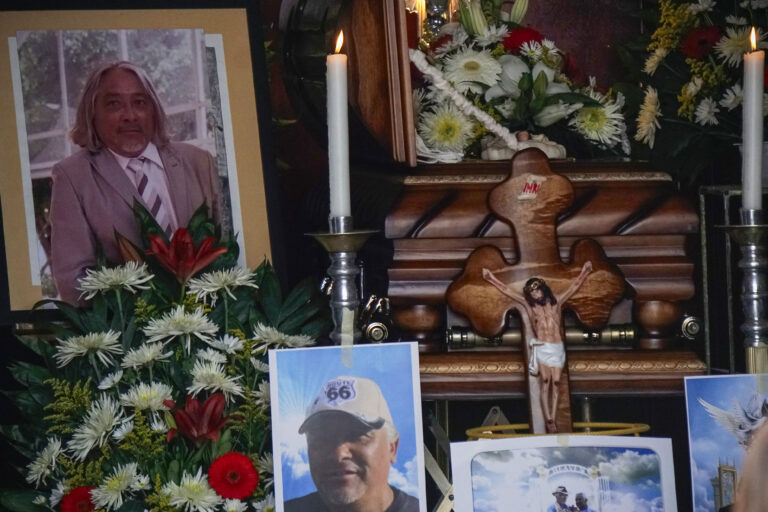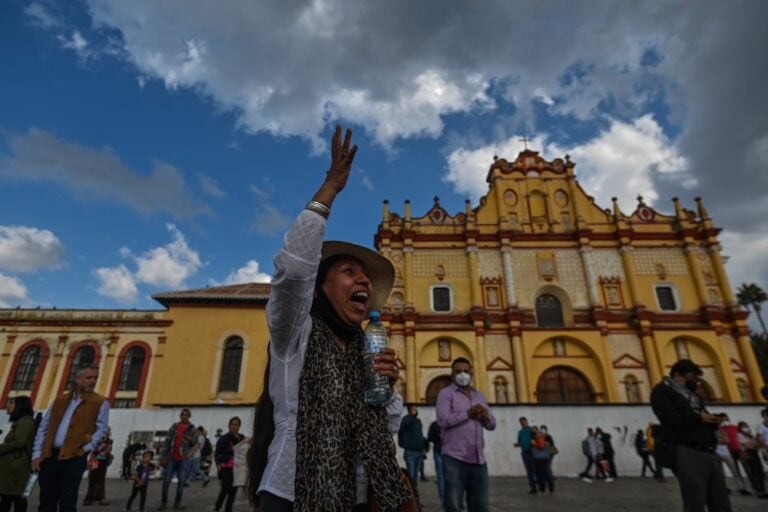(AMARC/ARTICLE 19/IFEX) – The following is a 10 June 2007 joint AMARC and ARTICLE 19 press release: Closure of Tierra y Libertad community radio station constitutes criminalisation of free expression Mexico, D.F., 10 June 2008 – AMARC and ARTICLE 19 are deeply concerned about the closure of Tierra y Libertad community radio station on 6 […]
(AMARC/ARTICLE 19/IFEX) – The following is a 10 June 2007 joint AMARC and ARTICLE 19 press release:
Closure of Tierra y Libertad community radio station constitutes criminalisation of free expression
Mexico, D.F., 10 June 2008 – AMARC and ARTICLE 19 are deeply concerned about the closure of Tierra y Libertad community radio station on 6 June 2008 in the city of Monterrey, Nuevo León state, when over 100 heavily-armed members of the Federal Preventive Police (Policía Federal Preventiva) violently burst into the station.
Over 200 people tried to defend the radio station. However, in the interest of preventing the escalation of the confrontation, they finally allowed the police to take away the station’s equipment. Representatives of the Public Ministry (Ministerio Público) were present to observe the police raid, but refused to provide the station staff with a copy of the search order and the record of the search itself, which they are legally obligated to do. Faced with protests by those present, the police did not take away station director Héctor Camero; however, the Public Ministry representatives warned him he had to appear in court on 13 June, although they declined to serve him the summons to do so required by law.
Tierra y Libertad, with a broadcasting radius of four kilometres, is heard in the poor neighbourhoods of Monterrey’s west end. With seven years of operation as a community radio station, it covers topics such as education, health, culture, human rights and labour issues, as well as offering political analysis. Much has been made of its “illegal status” as a station. However, it requested an operating licence in November 2002, which was formally received on 11 November that year by the Nuevo León office of the federal Secretary of Communications and Transport. To date, no response has been received from the authorities to the station’s application for status.
In view of the above, AMARC-México and ARTICLE 19 express their concern, given that:
1. This is not the first time that the authorities have closed a radio station without respecting the right to due process; in this case, the right to due process was violated by the seizure of the station’s equipment. If this radio station was operating without the appropriate licence, it was only because the federal government never responded to the station’s license application, thereby denying the station the opportunity to operate within the legal framework. This is the result of a radio and television broadcasting regulatory framework that allows excessive discretion by the authorities in handling applications. This situation was ruled unconstitutional by the Supreme Court’s decision on the amendments to the radio and television broadcasting law.
2. The federal government’s refusal to recognise community radio broadcasting and to establish an appropriate regulatory framework for the sector – one that meets the international norms on it issued by UNESCO and the Inter-American Commission on Human Rights (IACHR) – is alarming. It should be recalled that the Mexican state has promised the IACHR it would generate the conditions needed for community broadcasters to be established and flourish.
3. Freedom of expression should not be a criminal offence. Criminalising freedom of expression and the public’s access to information is a serious attack on the democratic state of law, as is recognised by Principles 1 and 5 of the IACHR’s Declaration of Principles on Freedom of Expression. Applying the General Law on National Assets (Ley General de Bienes Nacionales) to anyone operating a radio station without a licence, rather than applying the Federal Radio and Television Law (Ley Federal de Radio y Televisión), amounts to criminalising the use of technology to exercise one’s right to free expression.
AMARC-Mexico and ARTICLE 19 do not defend illegal actions, nor would they support the use of violence or other criminal actions by any media outlet. Both organisations fight for the establishment of equitable, democratic conditions so that society can fully exercise its right to freedom of expression. We demand that the Mexican state fully respect freedom of expression and the right to access to information, and ask it to not misinform the public with biased and concocted information, as it has in the case of Tierra y Libertad radio station.
NOTES:
1. Article 1 of the IACHR Declaration of Principles on Freedom of Expression states: “Freedom of expression in all its forms and manifestations is a fundamental and inalienable right of all individuals. Additionally, it is an indispensable requirement for the very existence of a democratic society.”
2. Article 5 of the IACHR Declaration of Principles on Freedom of Expression states: “Prior censorship, direct or indirect interference in or pressure exerted upon any expression, opinion or information transmitted through any means of oral, written, artistic, visual or electronic communication must be prohibited by law. Restrictions to the free circulation of ideas and opinions, as well as the arbitrary imposition of information and the imposition of obstacles to the free flow of information violate the right to freedom of expression.”


